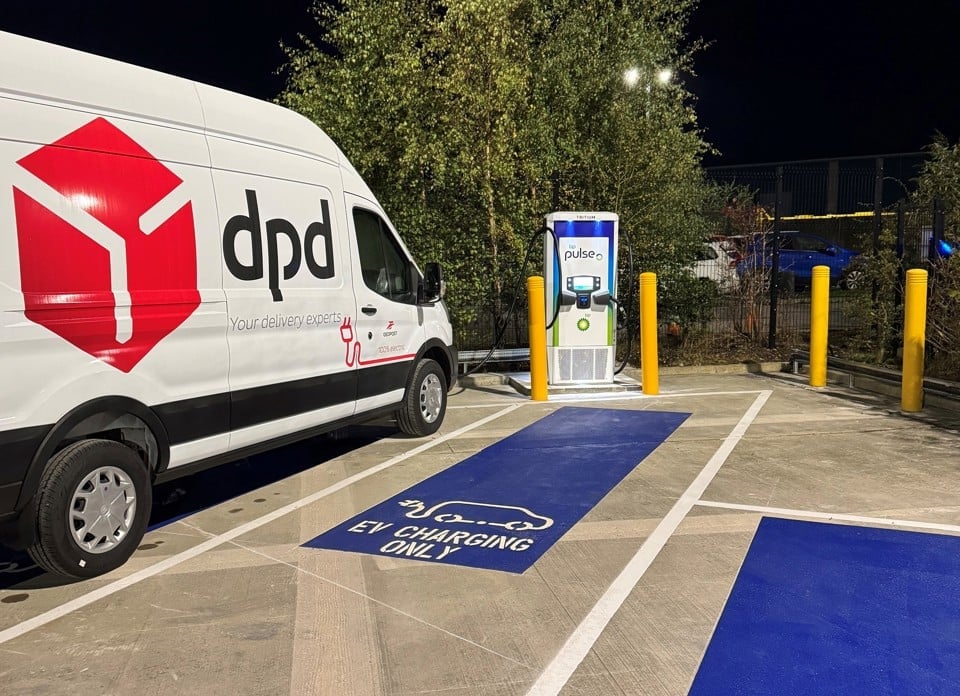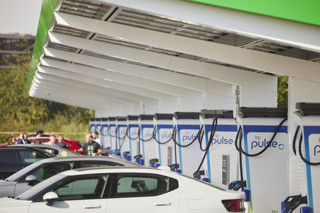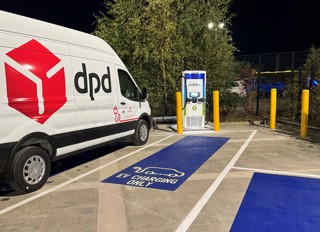BP Pulse has confirmed it has withdrawn from the workplace charging market to focus on its charging hubs and rapid charger network across the UK.
The business confirmed it will honour all existing installations, warranties, as well as service and maintenance agreements for any workplace charging customers, but no new business in relation to this segment of the market will be taken on.
A spokesperson for BP Pulse told Fleet News it is looking to deliver a "simpler, more focussed and higher value company”.
All BP Pulse workplace charging customers have been informed of the exit.
The spokesperson said: “At BP Pulse, which is part of BP, we are constantly assessing opportunities to improve our competitive position and better serve our customers.
“Our aim is to be the number one ultra-fast and rapid network in the UK.
“We’ll continue to focus on building on-the-go electric vehicle (EV) charging hubs and installing EV charging at our existing BP forecourts.”
The company said fleet customers can continue to access the BP Pulse network through BP’s fuel and charge card.
BP Pulse has more than 3,000 rapid and ultrafast EV chargers installed at over 1,000 locations across the UK.
Fleets like DPD have been working closely with BP Pulse after signing an EV charging infrastructure deal at the end of 2024.
The work included upgrading existing charging infrastructure and installing new rapid (DC) charging across dozens of DPD UK's depots, supporting the fleet operator’s growing EV fleet.
BP had actually indicated its intention of finding a buyer for its BP Pulse business in the Netherlands earlier this year, as part of its full year financial results statement.
Speculation over BP as a whole had ramped up to the point rival Shell had to respond in late June that “it has not been actively considering making an offer for BP and confirms it has not made an approach to, and no talks have taken place with, BP with regards to a possible offer”.
BP declined to comment when asked if it was looking for a buyer for BP Pulse before withdrawing, or whether it was still looking for a buyer for the division.
Further exits from workplace charging sector expected
Almost 60,000 workplace charging points have been installed through the Government’s grant funding scheme since 2016 and it announced the investment in this sector will continue until at least February 2026.
The Government grant provides support for organisations towards the cost of installing up to 40 EV charge point sockets at their sites.
The scheme covers up to 75% of the total costs of the purchase and installation of EV charge points through a voucher, capped at a maximum of £350 per socket, and is open to businesses, charities and public sector organisations.
Despite this, the expectation is that the tough operating environment for the workplace charging market means further consolidation is likely as the sector matures.
Jonny Berry, Novuna Vehicle Solutions head of decarbonisation, innovation and strategy, said: “With hundreds of hardware options available and the pace of change accelerating, it’s natural that the market is seeing ongoing consolidation.
“One of the most important factors in these scenarios is ensuring existing infrastructure can still be accessed and effectively managed—whether that’s for remote monitoring, software updates, or energy optimisation.”
Berry said this is where open standards like the OCPP (Open Charge Point Protocol) play a critical role.
He said: “When infrastructure is built with interoperability in mind, it creates resilience—enabling others to step in and provide continued support without disruption, and helping to ensure business continuity for fleets.”
Berry advised that fleets plan for contingencies when mapping out their EV charging infrastructure.
He added “It’s about ensuring long-term reliability and avoiding disruption to your fleet—not just today, but in the years to come.”
The goal of the OCPP is to provide a uniform method of communication between charge points and central systems. This protocol makes it possible to connect any central system with any charge point, regardless of the vendor.
Fleet News understands the majority of BP Pulse’s assets were not built on the OCPP, which means it’s difficult, but not impossible for fleets or other suppliers to find a work around.
BP declined to comment on whether its BP Pulse assets are OCCP compatible.
An EV charging technology specialist told Fleet News: “Technically anything is possible.
“There could be an increased cost to do the work, but if the estate is big enough, it’s worth doing that work rather than ripping everything out and starting again.
“We’re now starting to see the impact of walled gardens during the initial stages of the UK’s charging infrastructure rollout.”
BP’s exit adds complication to fleets’ decarbonisation plans
Paul Hollick, Association of Fleet Professionals (AFP) chair, acknowledged that as a commercial enterprise, BP is well within its rights to change direction, but said the exit has caused “added complication” for some fleets.
Hollick said BP’s exit does open up space for other suppliers to step in, but shifting to a new supplier “is an added complication to have to deal with, in addition to the wider challenge of decarbonisation”.
BP’s exit from the market highlights how some fleets have to strike the balance between choosing to spread projects across multiple partners and the risks of sole supply.
One UK fleet manager who preferred not to be named said BP’s exit has created “chaos and nervousness” among fleet managers planning out their workplace charging strategy, beyond those that were exposed to BP Pulse.
They said: “The previous dilemma for fleet managers over charging infrastructure was whether to go with a start-up or the big established name that has history and the financial clout behind them.
“If a company like BP pulls out, where does that leave you?”
The fleet manager said companies going out to tender with workplace charging infrastructure need to appoint two suppliers, one with the contract and another ready to take over as backup.
Another non-negotiable is appointing suppliers that operate on the OCPP. This avoids the situation where infrastructure has been put in place that is more closed and can only easily be updated and properly maintained by the original supplier.
The fleet manager said: “Fleets have to take BP at their word that service levels will be maintained, there will be updates, superb maintenance response and management.
“If you’re relying on this infrastructure to operate your electric fleet, is that a chance you’re willing to take?”




















Login to comment
Comments
No comments have been made yet.